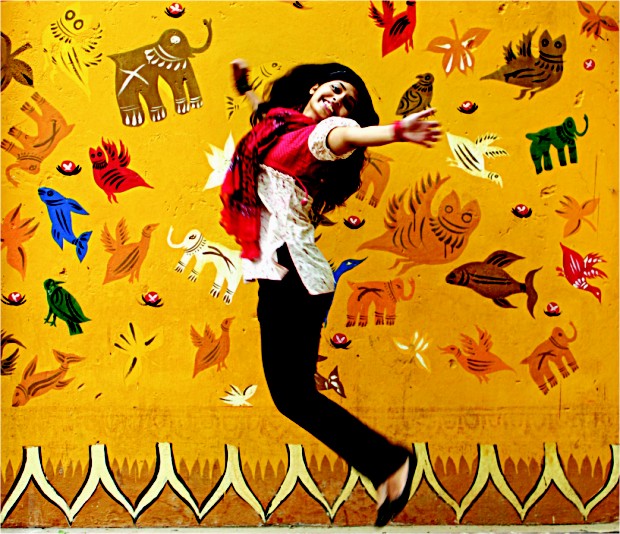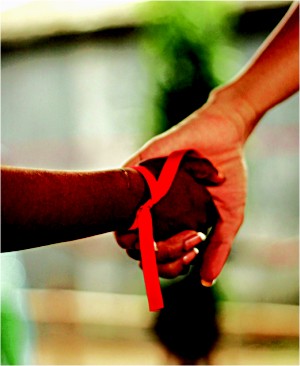Youth Speak
Celebrating Differences
How tolerant are the young in Bangladesh?
Elita Karim
Photos: Kazi Tahsin Agaz Apurbo
 |
It is not easy being different, especially in a country where even the normal ones spend almost a
lifetime trying to blend in with the society's age-old norms. |
It has been 10 years since the 9/11 massacre, shocking the world, along with the New York residents. According to reports, it seems that the Al-Qaeda group wanted to send a 'message' to the people of the United States of America and the rest of the world; while few claimed that it was a way to attain respect for Islam, many say that the incident actually encourage a form of intolerance towards Muslims and Islam. Countries with Muslim majorities, like Bangladesh, were suddenly taking sides, trying to figure out what went wrong and if participating in this religious war was some kind of an obligation. After a decade of trying to answer questions, moving with different crowds, not to mention, a considerable intellectual development, do we find young people in Bangladesh who try to practice tolerance?
"I was only 11 when the 'twin towers' incident had happened," says Latifa Samreen, a 21-year-old student at the Institute of Fine Arts, Dhaka University. "I remember being terrified at the fact that thousands were dead and their families suddenly felt helpless. My next-door neighbour, a girl my age, was telling me that an uncle of hers had told her that the 9/11 massacre had happened for the best, that it was a kind of victory for the Muslims, but it never made sense to me, and it still does not."
It is not easy being different, especially in a country where even the normal ones spend almost a lifetime trying to blend in with the society's age-old norms. In some cases, many young people do come out successful while trying to change an antiquated idea in society or to introduce something new in the growing fields of technology, media, education or just the basic social interaction. However, are there students and young thinkers ready to spare thoughts on religious beliefs, about bridging the gaps and bringing about a revolution to erase the many political-religious wars that rage within us, every day?
 |
What is important right now is working hand in hand and building
a better Bangladesh. |
Some say, that with many of the internal issues and obstacles that rage within us, namely looking for employment, competing with young people in other countries, an urge to become global citizens and not to mention, fighting the exhausting traffic jams -- it does get difficult for young people to keep their cool. In fact, that is when many youngsters decide to leave their homeland for better options abroad, for a better life. "It is high time that we grew up and learnt to deal with situations in an honest and academic manner," says 26-year-old Rayhan Siddique, a research student, currently completing his Master's Degree in Population Studies in the United Kingdom. "Today, thanks to every day corruption on many levels and the thousand different internal political problems that we have in the country, the new generation of young people has taken for granted the idea of lobbying in or pushing in their ideas, in stead of actually earning their way in."
Poverty being the root of all evils, young people find it difficult to stay patient with people who are slightly different than they are -- be it religious, cultural or in most cases, even physical. "Things are changing now," says an optimistic Samia Wadud Trina, a 20-year-old English major. "As a social worker, I interact with a lot of teenagers and young people belonging to a lower income group. Most of them are very tolerant of each other's differences, as long as they or their beliefs are not criticised or made fun of. I remember working with a disabled teenager a couple of months back. Surprisingly enough, the other participants in my workshop were helping her out so that she could catch up with the rest of the group."
"What is important right now is working together and building a better Bangladesh, no matter how clichéd it might sound," says 24-year-old Arup Sarkar, member of a local voluntary organisation where young students work together, rebuilding communities. "Religion should not be an issue when it comes to taking big-time decisions, which would help in rebuilding the lives of the people in Bangladesh. I have friends who are Muslims, Catholics, Buddhists, Brahmins -- and we all have a common goal -- making our own lives better and making Bangladesh a liveable country again."
This is the 21st century, and it's high time that the reins are left with the young people to decide and work for the betterment of the country. The authorities should build better platforms for these young minds to express themselves better and not feel inclined towards running away from the horrors, but rather facing their fears and building a safer nation.
|
|
|
